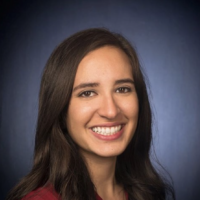Proper Disposal of Medications: Help Fight the Opioid Epidemic and Keep Drugs out of our Waterways
May 21, 2019
As a part of the Environmental Fellows Program (EFP) I was placed with the non-profit organization Clean Wisconsin and I didn’t know what to expect. I wanted to break out of my comfort zone and get some experience in unfamiliar topics and issues which is why I believed this placement was a good fit. I come from a science background (Bachelor’s in Environmental Science/pursuing a Master’s in Conservation Ecology), and I was now delving into an organization that deals with environmental issues mostly through environmental policy and legal action. Despite some slight anxiety in the couple of weeks leading up to my fellowship, I packed up my things and headed to Madison, Wisconsin.
My first day I was nervous. My supervisor had told me we had Monday meetings where each staff member spoke about what they had been working on and she wanted me to introduce myself and talk about the project I would be working on. I was expecting a meeting with a few people and to my surprise when I stepped into the conference room there were over 20 staff members and interns. Despite this, I went on to speak about myself and got to hear everyone’s tasks and projects and thought: “this seems to be the start of something great”.
Through the EFP program the fellows get to choose the top choices of organizations they want to work with by reading a brief description of their projects. Upon reading the projects Clean Wisconsin presented, Green infrastructure and Take Back my Meds Milwaukee and I chose the latter, which is a coalition that works towards reducing the risk unused pharmaceuticals pose to water resources and children’s safety by promoting disposable options through education and outreach. Coming from an ecology background I had thought about topics such as climate change and biodiversity loss, but never about the repercussions pharmaceutical medications could cause by polluting water bodies and by fueling an opioid epidemic.
Upon reading information regarding the project I was very affected by the fact that Milwaukee has the highest opioid addiction in the state and within the city the highest opioid rates were in the Hispanic neighborhoods. This fact hit home for me since as a Puerto Rican woman I am drawn to my fellow Latinos and couldn’t wait learn more about the issue.
The improper storage and disposal of unwanted or unused household pharmaceuticals in the state of Wisconsin poses many health, safety and environmental risks—including drug abuse, accidental poisoning and water pollution (University of Wisconsin Extension, 2012). Unused medications sometimes fall into the wrong hands such as teenagers that start consuming them, which can lead to addictions. 70% of opioid addictions start at home- often from unused medicine left in medicine cabinets (Express Scripts, 2018). This also poses an environmental threat, since many people throw these medications down the drain or into the trash, which can end up in water systems that are later treated by wastewater treatment facilities that do not have the technology to remove pharmaceutical agents (University of Wisconsin Extension, 2012). This presents a problem since these medications mostly end up in Lake Michigan, which is a big source of drinking water and serves as an important habitat for marine life.
To help address these problems, I called all the Milwaukee police departments and got information on their drop boxes and disposal requirements. Take Back my Meds Milwaukee promotes the safe disposal of pharmaceuticals through 2 types of take backs. One is through drop boxes (mailbox type containers where medications are deposited) and the other is pre-addressed postage free envelopes that ship to an approved disposal agency. Locations in Milwaukee that have these options can be seen on the Coalition’s website (https://www.takebackmymeds.com/). I helped create outreach and educational materials for local communities and translated available materials to Spanish for Hispanic neighborhoods.
In addition to this work, I also had the opportunity to go canvassing, which I had never done before and was excited yet scared. I did my door to door canvassing with Safe and Sound (an organization that works towards bringing together communities and law enforcement to keep neighborhoods safe) in Milwaukee’s Southside. During my first visit, I was nervous for what was to come but it immediately felt like home. Between all the Spanish signs, Latino music and Puerto Rican flags there was a sense of familiarity, like a little piece of home buried there. People from these Hispanic communities were concerned about their neighborhood safety and were worried about several issues, mainly drug addiction. Many were aware of the dangers unused pharmaceutical disposal poses to the environment and wanted to take action, but didn’t have the education or the means to do it.
Working on this project has opened my eyes on some important topics that I had not thought about before. One of the main things I liked is its interdisciplinary nature, covering environmental, justice, inequity, public health, addiction, pollution and many other issues.
With a welcoming and hard-working staff, a dedicated supervisor and several interesting projects, my summer with Clean Wisconsin has been more than I had hoped for and has taught me many invaluable things. I encourage other students to try new things and dare venture out of their comfort zone to do things that might be scary at first but will surely end up being a gratifying and unforgettable experience at the end.
References:
- The University of Wisconsin Extension.2012. Wisconsin Household Pharmaceutical Waste Collection: Challenges and Opportunities. Wisconsin Department of Natural Resources. https://dnr.wi.gov/topic/HealthWaste/documents/2012HouseholdPharmStudy.pdf
- Express Scripts. 2018. Tips to Prevent Prescription Drug Abuse at Home. http://lab.express-scripts.com/lab/insights/drug-safety-and-abuse/tips-to-prevent-prescription-drug-abuse-at-home
About Lorena Cortés Torres
